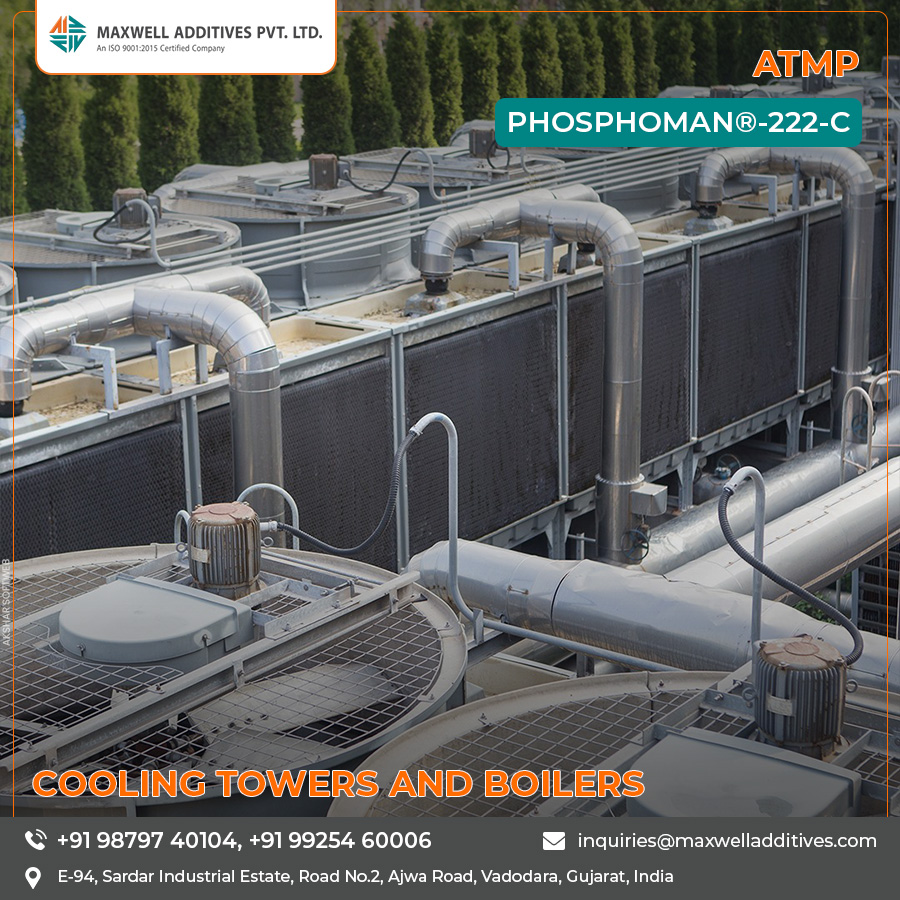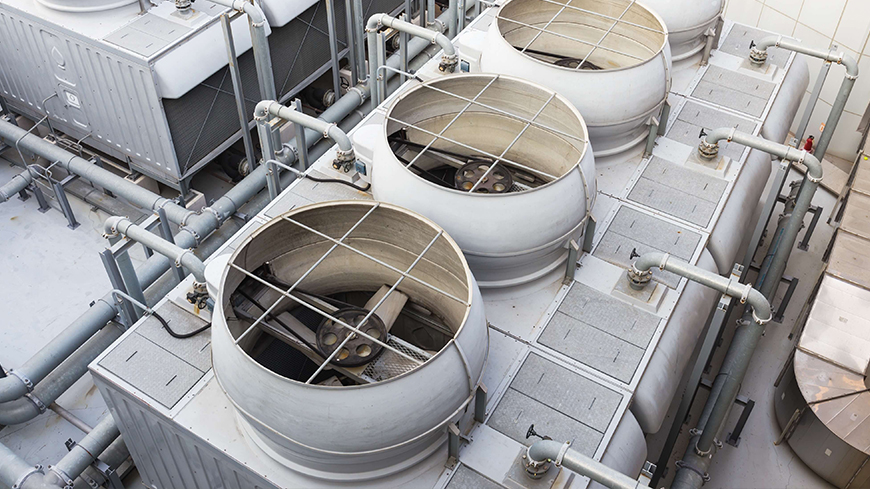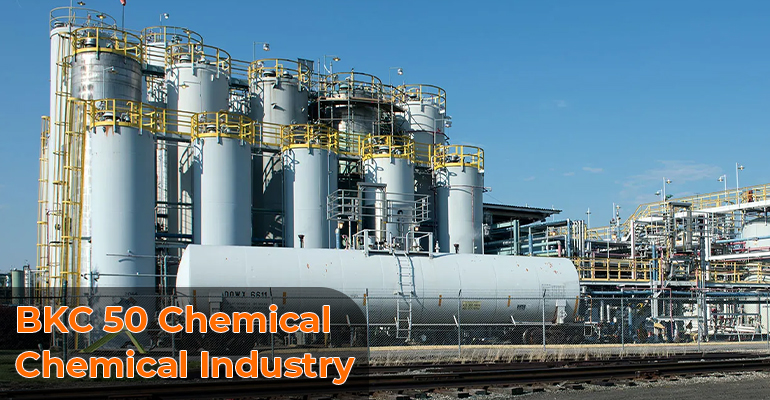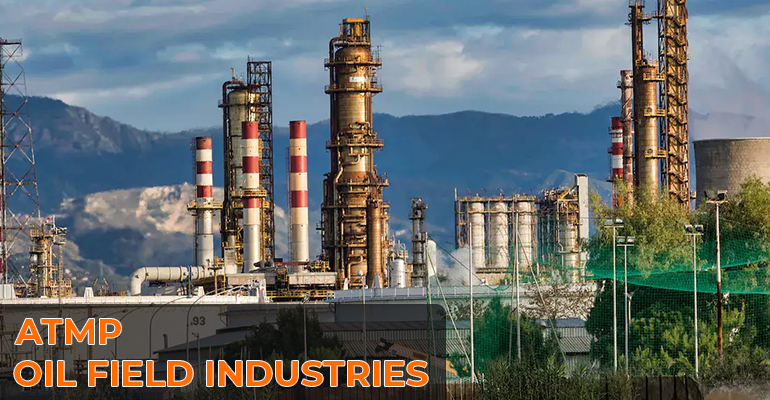BKC-50% - Benzalkonium Chloride is a widely used quaternary ammonium compound known for its potent antimicrobial properties. It is a chemical that has a broad spectrum of effectiveness against bacteria, fungi, and viruses, making it an core ingredient in various industrial and consumer products. One of the most popular forms of BKC is BKC 50%, an aqueous solution containing 50% by weight of the active ingredient, Benzalkonium Chloride. Maxwell Additives, a leading manufacturer of specialty chemicals, offers BKC 50% as a highly versatile biocide that plays a crucial role across several industries. From enhancing laundry detergents to preventing microbial growth in paints, adhesives, and cooling systems, Benzalkonium Chloride BKC 50 provides reliable, cost-effective, and ...
Affordable ATMP Manufacturer with Custom Packaging Options

As a leading ATMP manufacturer, we offer ATMP Chemical (Amino Trimethylene Phosphonic Acid), a powerful scale and corrosion inhibitor commonly used in industrial water treatment. Its strong metal ion chelation properties make it highly effective in preventing the buildup of calcium carbonate and calcium sulfate scales in water systems.
Manufacturing Process of Amino Trimethylene Phosphonic Acid (ATMP)
The manufacturing of Amino Trimethylene Phosphonic Acid (ATMP) is a carefully engineered chemical process designed to ensure high purity and consistent quality. At Maxwell Additives Pvt. Ltd., the process begins with the controlled reaction of ammonia, formaldehyde, and phosphorous acid under precise temperature and pressure conditions. This reaction forms a phosphonate compound, which is then subjected to further purification and neutralization stages. The resulting ATMP solution is filtered, quality-checked, and stabilized to ensure excellent scale inhibition, corrosion resistance, and long-term storage stability. Our expert team monitors every stage of production with advanced equipment and rigorous in-process testing to ensure compliance with industry standards. With a strong focus on product integrity and performance, Maxwell ensures that the final ATMP/Amino Tri(Methylene Phosphonic Acid) product is ideal for use in water treatment, oilfield applications, and industrial cleaning. Our commitment to concentrated quality makes us a trusted ATMP manufacturer and supplier in the global market.
Benefits of Tris(Methylene Phosphonic Acid) Amine/ATMP 50%
1. Excellent Scale Inhibition Properties
Aminotris (methylene phosphonic acid) is widely recognized for its superior scale inhibition ability, especially against calcium carbonate and other common waterborne minerals. It prevents the formation and deposition of scale in pipelines, cooling towers, and industrial boilers, ensuring smooth system performance and longer equipment life. Even in high-alkalinity or high-temperature conditions, ATMP remains stable and effective. This makes it a preferred chemical in water treatment applications where maintaining scale-free surfaces is critical for operational efficiency and cost reduction.
2. Strong Corrosion Resistance
One of the major advantages of Amino TrimethylenePhosphonic Acid is its excellent corrosion-inhibiting properties. It forms a protective layer on metal surfaces, particularly iron and steel, preventing oxidative degradation in water systems. This benefit is essential in industrial and municipal water treatment where metal components are exposed to corrosive environments. By minimizing corrosion, ATMP extends equipment lifespan, reduces downtime, and lowers maintenance costs, offering both immediate and long-term savings for industries relying on water-based systems.
3. High Thermal and Chemical Stability
ATMP Chemical exhibits exceptional thermal and chemical stability, making it suitable for use in demanding industrial conditions. It maintains its effectiveness in high-temperature environments and across a wide pH range. This allows it to function reliably in complex systems like oilfields, desalination plants, and high-pressure boilers. Unlike many other phosphonates, ATMP does not decompose easily under stress, ensuring consistent performance and reducing the need for frequent chemical adjustments or replacements in continuous operation processes.
4. Environmentally Friendly and Low Toxicity
ATMP Liquid is known for its low environmental impact and minimal toxicity, making it a safer alternative to many traditional water treatment chemicals. It biodegrades slowly, reducing the risk of harmful by-products in wastewater discharge. Its low toxicity to aquatic life and compatibility with other treatment agents make it ideal for environmentally conscious industries. ATMP is widely accepted in applications where safety and sustainability are priorities, such as municipal water treatment and eco-friendly industrial operations.
5. Versatile Applications Across Industries
The chemical versatility of Amino Trimethylene Phosphonic Acid (ATMP) 50% allows it to be used in a broad range of industries, including water treatment, oil and gas, textile processing, and detergents. Its multifunctional properties—scale inhibition, corrosion control, and stability—enable its use in both standalone and blended formulations. ATMP works well in systems with varying pH levels and water compositions, making it a reliable solution in customized industrial processes. This flexibility supports cost-efficiency and streamlined operations across different sectors.
Applications of ATMP (Amino Trimethylene Phosphonic Acid)
1. Squeeze Treatment in Oil Recovery
ATMP (Aminotrimethylene phosphonic acid) is extensively used in squeeze treatments for oil recovery due to its excellent scale inhibition and chemical stability under high temperatures and pressures. It prevents the formation of scale deposits in oil wells, maintaining flow efficiency and protecting downhole equipment. When injected into reservoirs, ATMP adsorbs onto rock surfaces and releases slowly, providing long-lasting protection. Its resistance to thermal degradation makes it ideal for harsh subsurface conditions, ensuring uninterrupted oil production and minimizing maintenance downtime.
2. Acid Cleaners
ATMP/Tris(Methylene Phosphonic Acid) Amine is a valuable additive in acid cleaning formulations used for industrial descaling and surface cleaning. It acts as a chelating agent that binds metal ions, preventing re-deposition of scale and residues during the cleaning process. Its strong sequestering ability enhances the effectiveness of mineral acid-based cleaners, especially in removing calcium, iron, and other inorganic scales. ATMP is stable in acidic environments, making it ideal for cleaning heat exchangers, boilers, and metal surfaces without causing corrosion or damage.
3. Textile Bleaching
In the textile industry, Amino TrimethylenePhosphonic Acid is used during bleaching processes to stabilize hydrogen peroxide and prevent catalytic decomposition caused by metal ions. It ensures even and effective bleaching of fabrics, improving brightness and color retention. ATMP also prevents fabric damage and enhances the quality of the final product by controlling metal-induced degradation. Its compatibility with other textile chemicals and high thermal stability make it a reliable agent in modern textile bleaching operations, particularly in high-speed and continuous processing systems.
4. Sugar Refining
ATMP plays a crucial role in sugar refining by controlling scale formation during the evaporation and crystallization stages. In sugar mills, mineral scales like calcium carbonate and calcium sulfate can severely impact process efficiency. ATMP prevents these deposits from forming on heat exchangers and evaporators, improving energy efficiency and reducing cleaning frequency. Its non-toxic nature makes it safe for use in food processing, and its thermal stability ensures consistent performance throughout the high-temperature refining cycle.
5. Paper and Pulp Bleaching
In paper and pulp bleaching, ATMP Chemical is used to stabilize bleaching agents such as hydrogen peroxide and prevent the interference of metal ions that can reduce bleaching efficiency. It helps maintain pulp brightness, reduce chemical consumption, and improve yield. Additionally, ATMP prevents scale buildup in pipelines and heat exchangers, ensuring smoother plant operation. Its ability to function effectively under varying pH and temperature conditions makes it a trusted additive in both mechanical and chemical pulping processes.
 Why Cooling Systems Utilize ATMP
Why Cooling Systems Utilize ATMP
ATMP (Aminotrimethylene phosphonic acid) is widely used in cooling systems due to its exceptional ability to control metal ions and prevent scale formation. As an organophosphonate, Aminotris (methylene phosphonic acid) exhibits excellent sequestration properties at stoichiometric levels, meaning it effectively binds with metal ions like calcium, iron, and magnesium, preventing them from forming hard deposits that can damage equipment.
What makes Amino Tri(Methylene Phosphonic Acid) especially valuable in cooling water treatment is its threshold inhibition capability. Even at sub-stoichiometric concentrations, it prevents the precipitation of metal salts—offering significant protection against scale formation with minimal dosage. Additionally, ATMP’s strong dispersing and deflocculating abilities help maintain the stability of solid particles, ensuring they don’t clump and settle within the system.
Its hydrolytic stability under high temperature and pH conditions further enhances its reliability, making it an ideal antiscalant for demanding industrial cooling systems. By incorporating Tris(Methylene Phosphonic Acid) Amine, industries ensure long-term protection of heat exchangers, condensers, and pipelines, improving efficiency and reducing maintenance costs. Overall, ATMP plays a crucial role in enhancing the performance and lifespan of cooling systems through superior scale control and metal ion management.
Features of ATMP Chemical in Cooling Water Treatment
1. Excellent Chelating Ability
2. Threshold Inhibition
3. Strong Antiscalant Performance
4. Dispersing and Deflocculating Properties
5. Hydrolytic Stability
6. Corrosion Inhibition
7. Long-Term Efficiency
8. Compatible with Other Water Treatment Chemicals
Contact us; we take pride in being a leading Amino Trimethylene Phosphonic Acid or ATMP manufacturer and supplier. Reach out to our expert team to get a quote, request samples, or discuss custom formulation needs.
FAQs
1. What is ATMP and why is it used in cooling water treatment?
ATMP (Amino Trimethylene Phosphonic Acid) is a powerful antiscalant and corrosion inhibitor used to prevent scale buildup and metal corrosion in industrial cooling systems.
2. How does ATMP prevent scale formation?
ATMP chelates metal ions like calcium and magnesium and inhibits scale formation even at low concentrations through threshold inhibition.
3. Is ATMP effective under high temperature and pH conditions?
Yes, ATMP offers excellent hydrolytic stability, making it effective in harsh conditions commonly found in industrial cooling systems.
4. Can ATMP be used with other water treatment chemicals?
Absolutely. ATMP is compatible with most water treatment chemicals including biocides, corrosion inhibitors, and dispersants.
5. What industries commonly use ATMP for water treatment?
Industries with cooling towers, heat exchangers, and water circulation systems—such as power plants, chemical plants, and manufacturing units—commonly use ATMP.



